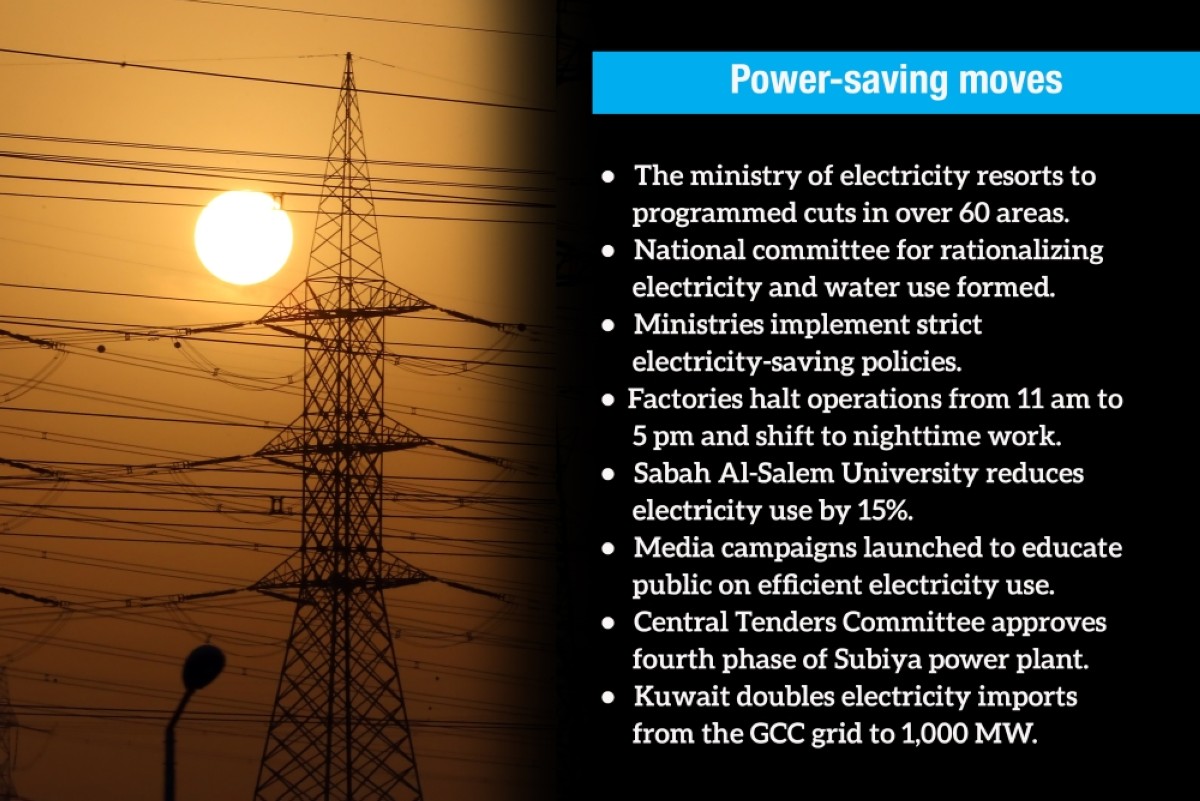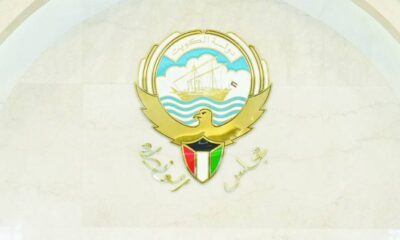KUWAIT: Authorities in Kuwait have stepped up power consumption efforts in a bid to resolve a chronic electricity crisis that has hit the oil-rich country for years, forcing the ministry of electricity, water and renewable energy to resort to programmed cuts in the summer when temperature soars above 50 degrees Celsius.
Despite assurances by top officials that 2025 was likely to pass without cuts, people were surprised by unprecedented wide-ranging cuts in early April, when a sudden surge in the mercury came as a number of generators were under annual maintenance, reducing the available electricity.
The ministry was forced to impose power cuts to parts of over 60 residential, agricultural and industrial areas as temperatures surged above 40 degrees Celsius, unfamiliar for this part of the year. New Minister of Electricity and Water Sabeeh Al-Mukhaizeem said consumption on April 9 was 21 percent higher than the same day last year and it was 17.3 percent higher on April 10, attributing the rise to a jump in temperature.
Just two days before the power cuts, Al-Mukhaizeem issued a decision to form a “committee for rationalizing the consumption of electricity and water in Kuwait” headed by the ministry undersecretary and including representatives from many ministries, establishments and independent authorities. The committee is entrusted to design awareness programs to convince
people as well as the private sector to save energy, especially between 11 am and 5 pm daily, when consumption peaks in hot summer days. During its first meeting, the committee launched its first energy-saving campaign “Save 2025”.
Almost all ministries, headed by the ministries of defense, education, higher education, Islamic affairs, health and the industries union ordered their staff to observe strict rationalization policies that include instructions on the use of air-conditions, believed to be responsible for 70 percent of electricity consumption in the summer.
The Public Authority for Industry instructed industrial establishments to stop work from 11:00 am to 5:00 pm and compensate for that during nighttime hours. Minister of Higher Education Nader Al-Jallal visited the new campus of Sabah Al-Salem University to inspect the university’s pioneering initiative “Let’s be partners in saving electricity” launched last year, which helped save 15 percent of the university’s consumption and is expected to increase to 20 percent.
Authorities are also launching media campaigns to enlighten the public about the benefits of saving energy through the adequate use of various devices at home, especially AC units. The problem is that Kuwait’s domestic electricity production is not enough to meet ever-rising consumption in summer, mainly because new power generation projects were too slow to be sanctioned in the past decade.
Just two days ago, the electricity ministry said the Central Tenders Committee approved a new tender for the fourth phase at Subiya power plant that will add 900 MW after three years, the first key project in several years.
In 2024, consumption rose to over 17,000 megawatts for the first time ever and local production coupled with a 500 MW daily import from the Gulf power grid failed to meet demand. This year, consumption was forecast to cross 18,000 MW. Former Electricity and Water Minister Mahmoud Bushehri said two months ago, just before he quit, that local consumption will top the 18,000 MW mark and that Kuwait has doubled its imports from the Gulf power grid to 1,000 MW.
Bushehri vowed in February that the ministry will not resort to power cuts during next summer after it raised its output and the import from the GCC power grid. Also in February, Bushehri told a regional meeting on renewable energy that Kuwait was expected to generate some 5,700 MW of electricity from renewable energy over the next four years with investments exceeding KD 1 billion. According to unofficial statistics, per capita electricity consumption in Kuwait is one of the highest in the world.


















